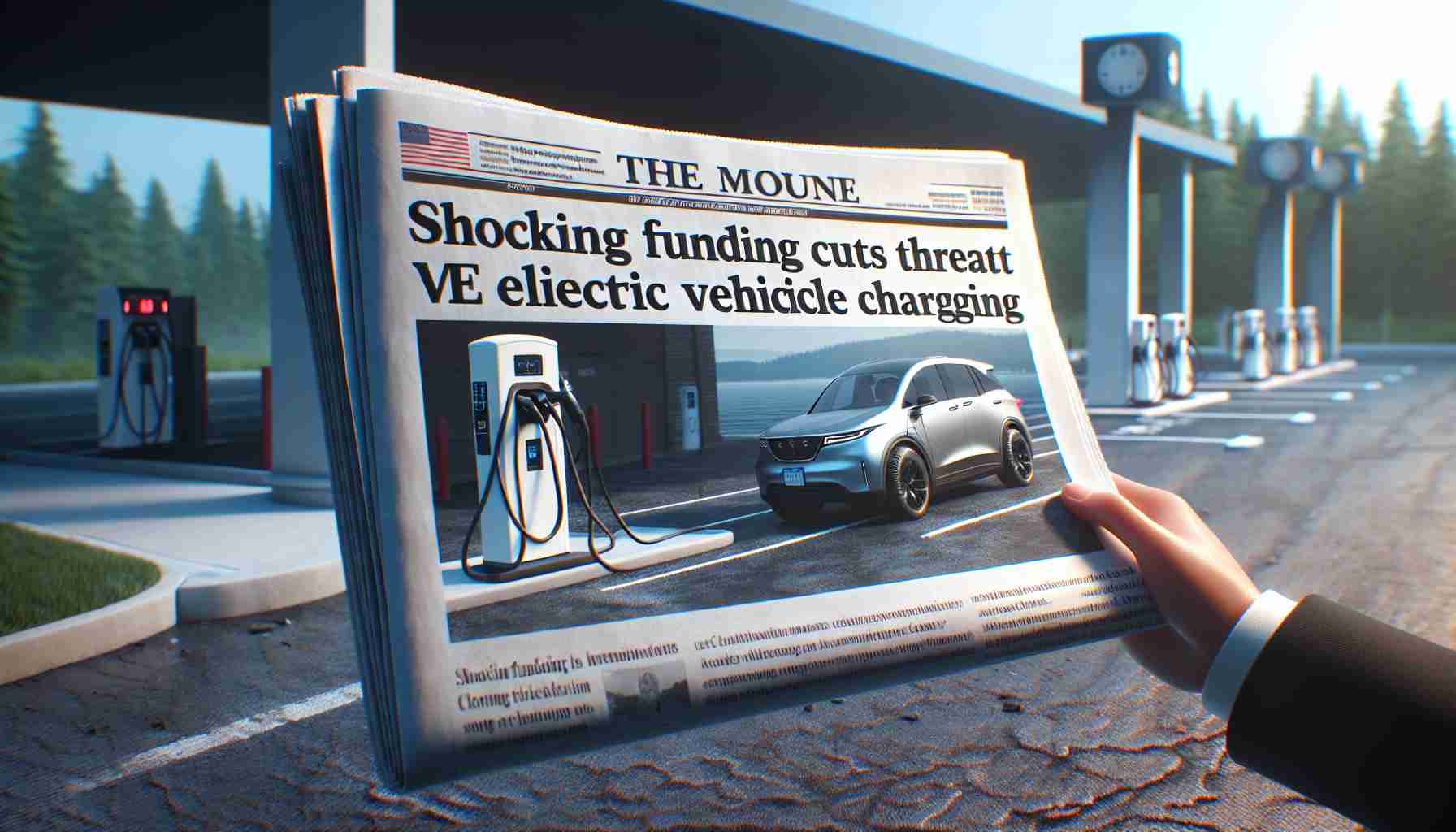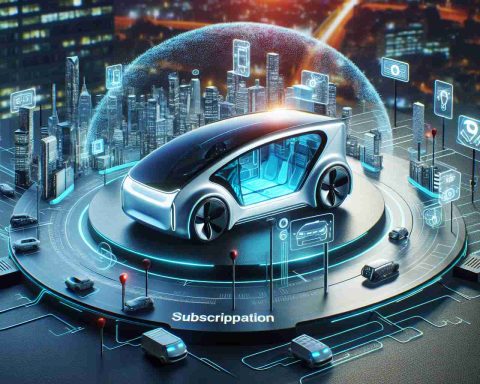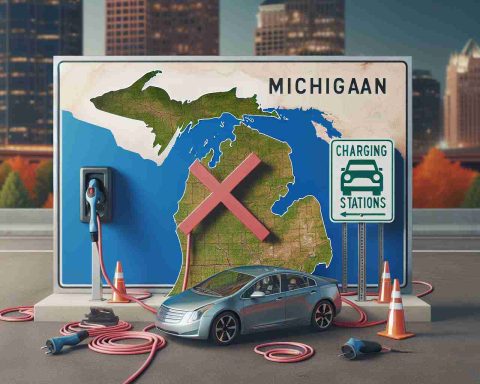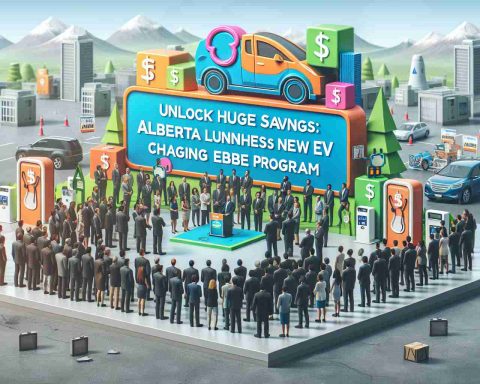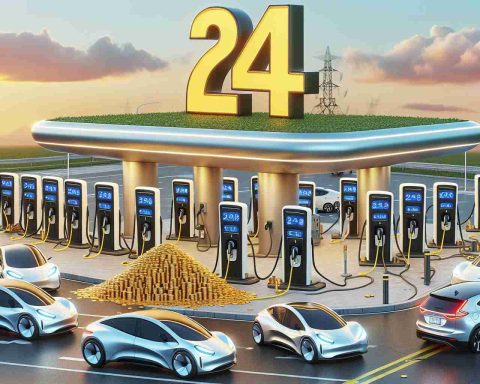- Maine’s expansion plans for electric vehicle (EV) charging stations face funding challenges due to federal cutbacks.
- The Trump administration has reduced support for EV charger installation, affecting state infrastructure development.
- The National Electric Vehicle Infrastructure (NEVI) program is under review, leading to uncertainty in funding allocations.
- Maine has secured approximately $15 million for 13 charging stations, with some already operational.
- Critics highlight that “range anxiety” is a barrier to EV adoption in Maine, stressing the need for enhanced infrastructure.
- Despite challenges, Maine’s leaders remain committed to developing a sustainable transportation system.
Maine’s ambitious plans to expand its electric vehicle (EV) charging network are under fire as federal funding faces a dramatic cut. The Trump administration has pulled back on financial support meant for the installation of EV chargers, casting a shadow over $4 million that was earmarked for Maine. This abrupt move has dashed hopes for a robust infrastructure that many believe is crucial for boosting electric vehicle usage across the state.
The National Electric Vehicle Infrastructure (NEVI) program, a Biden-era initiative that facilitated up to 80% funding for charger installations on highways nationwide, is now in jeopardy. Officials from the Department of Transportation have stated they need to reassess how the program aligns with current policies, leading to uncertainty for numerous states looking to implement charging systems.
Despite the upheaval, Maine has crucial funding already secured: around $15 million is still allocated for 13 charging stations in cities like Augusta and Portland. Some stations are operational, while others are in various stages of development. However, an estimated $4 million remains in limbo and is dependent on fresh guidance from federal authorities.
The push for expanding charging stations is not just about convenience; it’s also politically charged. Critics argue that Maine is lagging behind and that the fear of running out of power—often dubbed “range anxiety”—is keeping residents from embracing electric vehicles.
As the future of funding hangs in the balance, Maine’s leaders and environmental advocates are steadfast in their commitment to create a cleaner, more sustainable transportation landscape. Will Maine overcome these federal hurdles and drive towards a greener future? Stay tuned!
Is Maine’s EV Charging Network on the Brink of Collapse?
Maine’s Electric Vehicle Charging Network: Current Status and Future Prospects
Maine is at a critical juncture in its efforts to expand its electric vehicle (EV) charging network, facing challenges amid federal funding cuts. As the state works to build infrastructure crucial for the adoption of EVs, recent developments could impact its ambitious plans.
Key Information
1. Funding Challenges and Opportunities: While Maine is facing a potential loss of $4 million in federal funding due to changes in the National Electric Vehicle Infrastructure (NEVI) program, the state still has $15 million secured for the creation of 13 charging stations. This funding is essential for enhancing EV accessibility in urban areas like Augusta and Portland.
2. Political Implications: The topic of EV infrastructure is not only a matter of technology but also of political significance. The debate is intensifying around local vs. federal funding responsibilities and the role of government in supporting green technology.
3. Public Sentiment and Adoption: Range anxiety remains a significant barrier to EV adoption in Maine. The expansion of charging stations is seen as vital to alleviating this concern, fostering public confidence in using electric vehicles.
FAQs
1. What are the implications of federal funding cuts on Maine’s EV infrastructure?
The recent pullback of federal funding could stall the expansion of the EV charging network in Maine. While the state has some funding secured, the uncertainty surrounding the additional $4 million may hinder future development and outreach efforts to encourage EV adoption.
2. How does Maine’s EV charging network compare to other states?
Maine’s EV charging infrastructure is considered to be lagging behind some more progressive states, such as California and New York, which have heavily invested in their networks. This creates a competitive disadvantage and could deter potential EV users in Maine.
3. What steps are being taken to mitigate range anxiety among potential EV users?
Maine is actively working to establish more charging stations in densely populated and frequently traveled areas. These efforts aim to increase convenience, thereby reducing range anxiety. Educational programs and outreach initiatives are also being developed to promote the benefits of EVs and the existing infrastructure.
Interesting Insights
– Market Analysis: As the EV market continues to grow, a robust charging network is essential for states like Maine to keep pace with national trends and maintain competitiveness in green technology.
– Innovations in Charger Technology: New charging technologies are being developed that could significantly reduce charging times and increase the public’s willingness to transition to electric vehicles.
– Sustainability and Economic Impact: An expanded EV charging network not only contributes to reduced emissions but also supports local economies by creating jobs in infrastructure development and maintenance.
For more information about the electric vehicle initiatives and broader environmental policies in Maine, visit Maine Government.
